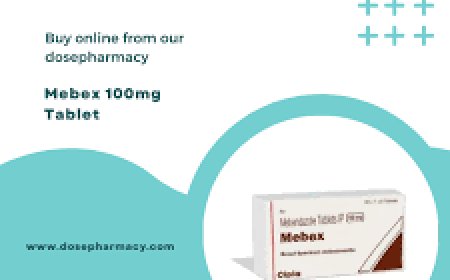Advancing Nursing Practice Through Flexible, Competency-Based Education
Blog about Advancing Nursing Practice Through Flexible, Competency-Based Education

In an era of rapid healthcare transformation, nursing education must rise to meet increasing demands for adaptability, critical thinking, and leadership. Nurses are no longer confined to patient care alone; they now serve as collaborators, innovators, and advocates within multidisciplinary teams. The evolution of nursing roles demands equally progressive education models. One such modelFlexPathhas emerged as a powerful tool for shaping capable, future-ready nurses. Its competency-based approach allows learners to demonstrate mastery through real-world applications rather than traditional exams. Supporting this journey are tools like FPX Assessments, which provide structure and clarity for students tackling challenging assignments within a self-paced learning environment.
Why Competency-Based Learning Matters in Nursing
Healthcare is complex and ever-changing. New treatment protocols, emerging technologies, and diverse patient populations require nurses to adapt quickly and act with confidence. Traditional nursing programs often fall short in this regard, emphasizing fixed schedules and uniform learning pathways that do not account for individual pace, experience, or learning style.
FlexPath offers an alternativea competency-based education model where students progress by demonstrating understanding, not by spending a prescribed amount of time in a classroom. This model is especially beneficial for adult learners, including working nurses who bring real-world experience to their studies. Rather than repeating content they already know, these students can accelerate through familiar material and spend more time on unfamiliar or challenging areas.
The model fosters autonomy, critical thinking, and accountability. Learners take charge of their education, and the focus shifts from grades and test performance to practical application and reflection. FPX Assessments serves as a key support system in this process, helping students structure their assignments, interpret complex rubrics, and meet academic standardsall while maintaining the personalized pace FlexPath allows.
Integrating Ethics and Cultural Competence in Patient Care
Modern healthcare is as much about communication and cultural sensitivity as it is about clinical expertise. With patient populations becoming increasingly diverse, nurses must understand and respond to the unique cultural, religious, and ethical perspectives of those they serve. Failure to do so can lead to miscommunication, dissatisfaction, or compromised care.
Recognizing this, FlexPath integrates cultural competence and ethics into its curriculum. Assignments challenge students to assess how cultural values and moral principles affect care delivery, communication, and decision-making. These assessments not only develop clinical judgment but also cultivate empathy and awareness.
In nurs fpx 4045 assessment 3, students explore a complex case that blends ethical challenges with cultural tension. They are required to use professional codes of ethicssuch as the ANA Code of Ethicsand cultural assessment frameworks to propose appropriate actions. The scenario demands that students consider the patients values alongside legal and professional responsibilities.
By completing such assignments, learners become better equipped to navigate the diverse realities of modern healthcare. They learn how to have difficult conversations, advocate for culturally respectful practices, and deliver holistic, person-centered care.
Developing Leadership Through Practice-Based Assessments
Nurses at every level are increasingly called upon to leadnot just in formal leadership roles, but in daily decision-making, collaboration, and systems improvement. Whether guiding peers, mentoring new nurses, or addressing inefficiencies in care delivery, leadership is a core nursing function.
FlexPath fosters leadership development by embedding systems thinking, collaboration, and problem-solving throughout its assessments. Rather than studying leadership as an abstract concept, students apply it in realistic situations. They are expected to evaluate organizational weaknesses, design improvement strategies, and communicate solutions to key stakeholders.
One key example is nurs fpx 4055 assessment 5, which requires students to identify a prevalent issue in a healthcare settingsuch as delayed discharges, inconsistent handoffs, or low patient satisfactionand develop an evidence-based improvement plan. The assessment involves root cause analysis, engagement with interprofessional teams, and outcome measurement strategies.
This hands-on approach enables students to gain experience in leading change, advocating for best practices, and navigating institutional barriers. These are essential capabilities for nurses aiming to take on managerial roles or spearhead clinical innovations.
By engaging with such leadership challenges, students not only expand their influence within healthcare systems but also become catalysts for long-term improvements in patient care and operational efficiency.
Evidence-Based Practice as the Foundation of Professional Nursing
Evidence-based practice (EBP) is the gold standard in modern nursing. It ensures that patient care is guided by the latest research, clinical expertise, and patient preferences. Nurses must be able to evaluate evidence, apply it to practice, and contribute to continual care improvement.
FlexPath emphasizes EBP across all its assessments. Students are consistently required to research scholarly literature, compare clinical guidelines, analyze outcomes, and justify their clinical decisions with credible sources. This process helps build the research literacy and analytical skills needed to evaluate interventions critically.
These tasks also help students adopt a mindset of inquiryencouraging them to ask better questions, seek data-driven answers, and remain open to new information. Over time, this approach becomes habitual, preparing students to engage in clinical research, implement innovations, and participate in evidence-informed policymaking.
Resources like FPX Assessments assist students with the scholarly aspects of EBP. From helping to formulate research questions to structuring arguments and mastering APA style, FPX ensures that students meet high academic standards. This reduces barriers to success and allows students to focus more deeply on content and critical thinking.
Graduates who excel in EBP are better prepared to introduce new practices, measure effectiveness, and advocate for improvements in patient safety and quality. They serve as essential links between research and real-world application.
Conclusion: Capstone as a Gateway to Professional Practice
At the end of the FlexPath journey lies a significant milestone: the capstone project. This culminating assessment, nurs fpx 4905 assessment 3, integrates all the key competencies students have developed throughout the programclinical expertise, ethical reasoning, leadership, cultural awareness, and evidence-based decision-making.
In this final assignment, students choose a problem from their own clinical experienceoften something theyre passionate about improving. Whether its medication errors in a long-term care facility or communication gaps in an emergency department, the issue must be analyzed in depth. The student then proposes an intervention that is feasible, ethical, evidence-informed, and culturally sensitive.
The capstone is more than an academic exerciseits a blueprint for action. Students must outline goals, identify stakeholders, anticipate challenges, and establish evaluation criteria. Many graduates go on to implement their capstone projects in their workplaces, driving meaningful change and demonstrating their readiness for leadership roles.
Support from FPX Assessments during this phase helps students deliver polished, professional work. Their guidance ensures that capstone projects are not only well-organized and clearly written but also impactful and aligned with academic expectations.
Ultimately, the capstone represents the transformation of nursing students into nursing professionals. It showcases their ability to think critically, act ethically, lead confidently, and apply knowledge in practical, measurable ways. As graduates complete this final challenge, they are well-equipped to lead improvements in patient care, influence healthcare delivery, and elevate the nursing profession.





























